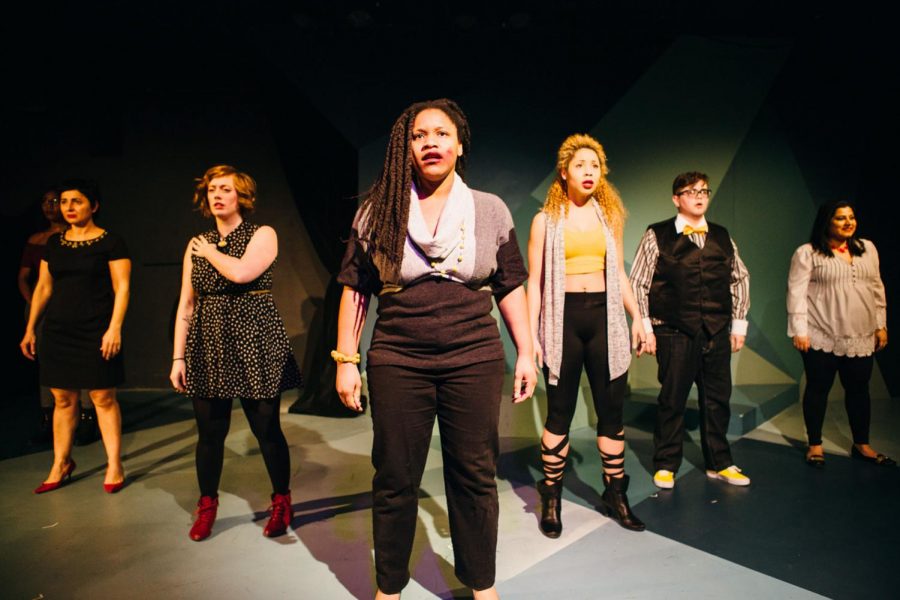Local play ‘breaks down’ gender inequity
“Gender Breakdown” will preview Feb. 21 at the Flat Iron Arts Building, 1579 N. Milwaukee Ave.
February 20, 2017
Despite Some progress in the arts, the predominance of mostly-male casts suggests Chicago theater is still filled with gender bias, according to a 2015–2016 study from DePaul University.
The study of casting disparity in large, Chicago equity productions from 2015 to 2016 found that 77 percent were majority male casts with the remainder majority female casts.
Collaboraction Theatre Company’s “Gender Breakdown,” a play with an all-female cast and production team, hopes to tackle these issues and spark conversation about equality in theater. The play will preview Feb. 21 at the Flat Iron Arts Building, 1579 N. Milwaukee Ave. in Wicker Park.
Creator Dani Bryant said the play explores the experiences of female-identifying theater artists in Chicago.
“It started with the hope to look at gender parity in the theater community, which leads into what we know about Hollywood and show business,” Bryant said. “What we wanted to focus on was the gender balance of what it meant to be a female-identified theater artist in Chicago.”
Director Erica Vannon said the play was inspired by dinner conversations that she, Bryant and other female-identifying theater artists had about the strengths and weaknesses of Chicago theater. A common theme, she said, was intersectionality—multilayered facets of oppression.
“Quickly, we moved from talking about just gender [to] talking about what it meant to be a woman-of-color theater artist,” Bryant said.
The play is experimental and nontraditional, Vannon said. Instead of just one main storyline, it goes back and forth between ensemble group scenes. It is more thematically based around education, exploring what the actors were taught theatrically in school and in casting calls and how it has affected their careers, she added.
Anthony Moseley, artistic director at Collaboraction, said these issues in the theater industry are parallel to other social issues in the country.
“Breaking down the patriarchy in this country, [looking at] data, and listening to stories from female-identified Chicago theater artists, it becomes really clear that we need to incite some change in our own industry,” Moseley said.
Vannon said she hopes the play will attract people who are already starting to dig into their own preconceptions or prejudice and think about ways they can view equality.
In this political climate, she said creating art such as this feels like activism that can incite the community to talk about change.
“I hope theater artists will see their stories told onstage, but even the non-theater artist will be able to see it connect it back to their own career,” Bryant said. “A lot of the misogyny and power dynamics that are experienced in a rehearsal room are the same with all women professions.”








